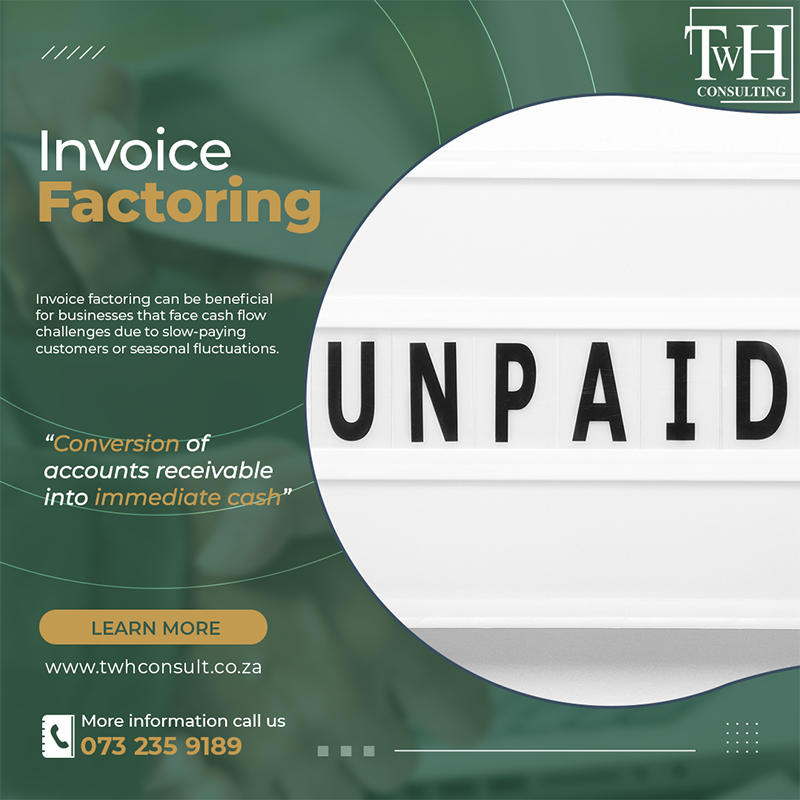What is Invoice Factoring?

Invoice factoring or invoice discounting, also known as accounts receivable factoring, is a financial arrangement where a business sells its accounts receivable or current unpaid invoices to a third-party company called a factor.
In this process, the factor advances a significant portion of the invoice value to the business, providing immediate cash flow. The factor then assumes the responsibility of collecting payment from the customers.
The term "factor" has been traditionally used in the financial industry to describe entities that provide financing or undertake certain financial activities.
In the case of invoice factoring, the factor plays a crucial role in facilitating the conversion of accounts receivable into immediate cash, enabling businesses to address their cash flow needs.
- Process: The business provides the factor with copies of its unpaid invoices, and the factor verifies the legitimacy of the invoices and creditworthiness of the customers. Upon approval, the factor typically advances around 70-90% of the invoice value to the business within a few days. The remaining percentage, minus the factor's fee, is paid to the business once the customer settles the invoice.
- Cash flow improvement: Invoice factoring helps businesses improve their cash flow by converting their accounts receivable into immediate cash. Instead of waiting for customers to pay, businesses can access funds upfront, allowing them to cover operational expenses, invest in growth, and meet financial obligations.
- Factor's fee: The factor charges a fee for its services, which is typically a percentage of the invoice value. The fee varies based on factors such as the creditworthiness of the customers, the volume of invoices, the industry, and the duration of payment terms.
- Risk transfer: Once the factor purchases the invoices, it assumes the risk of non-payment. If the customer fails to pay the invoice, the factor absorbs the loss. This aspect can be advantageous for businesses as it helps mitigate the risk of bad debt.
- Customer relationships: In invoice factoring, the factor takes over the collection process, which includes interacting with the customers to collect payment. Depending on the type of factoring arrangement (recourse or non-recourse), the factor may have recourse to the business if the customer fails to pay.

- Confidentiality: Some factors offer non-disclosure agreements (NDAs) to maintain confidentiality, ensuring that the customers are not aware of the factor's involvement. This is known as non-notification factoring.
TWH Consulting provides invoice factoring loans in Paarl and invites you to apply by clicking here.
We service the whole of South Africa from our head office in Cape Town and branches across South Africa.
CAPE TOWN
PRETORIA
BLOEMFONTEIN
JOHANNESBURG
EAST LONDON
DURBAN
Port Elizabeth
Gqeberha
KEMPTON PARK
POLOKWANE
NELSPRUIT
GEORGE
RUSTENBURG
GERMISTON
VEREENIGING
BELLVILLE
KIMBERLEY
KLERKSDORP
VANDERBIJLPARK
PAARL
SOMERSET WEST
LOUIS TRICHARDT
Pietermaritzburg
Centurion
